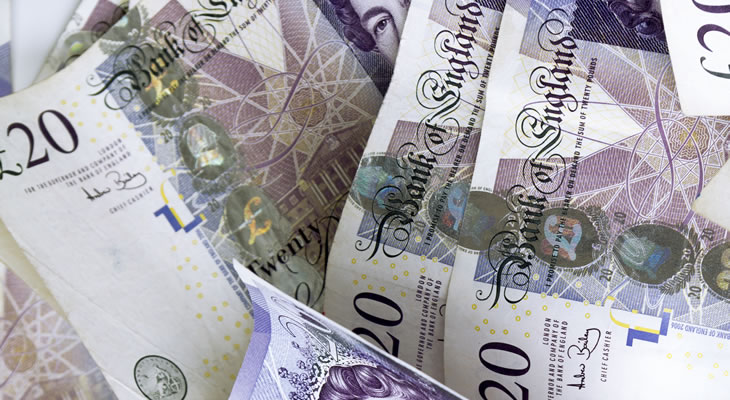Rising UK Mortgage Approvals Fails to Buoy Pound US Dollar (GBP/USD) Exchange Rate
A better-than-expected month of growth in UK mortgage approvals was not enough to keep the Pound Sterling to US Dollar (GBP/USD) exchange rate on a positive footing.
While mortgage approvals hit their highest level since October 2007 this improvement failed to lift demand for Pound Sterling (GBP).
After the solid gains seen on Monday GBP exchange rates were unable to hold onto their bullish momentum as the initial bout of optimism over the final round of Brexit talks faded.
As the increase in mortgage approvals was largely a result of the housing market going into a state of hibernation over the summer, thanks to the Covid-19 lockdown, it impact on the Pound proved muted.
Lingering doubts over the health of the economic outlook and the lingering issue of Brexit also served to push the GBP/USD exchange rate onto the back foot.
Widening US Goods Deficit Limits Potential for US Dollar Gains
As August’s US advance goods trade deficit widened further than forecast the US Dollar (USD) came under pressure.
Investors were disappointed to find that trade had continued to deteriorate in August, reflecting the ongoing impact of the Covid-19 crisis.
This suggests that the world’s largest economy remains exposed to risk in the second half of 2020, with deteriorating trade conditions likely to drag on overall growth.
An increasing sense of anxiety over the upcoming presidential election debate added to the bearish mood of USD exchange rates, with markets wary of the potential for fresh political turmoil.
As long as the November election looks set to prove a flashpoint confidence in the US Dollar may prove limited.
Friday’s non-farm payrolls report could also weigh heavily on USD exchange rates, unless the unemployment rate can demonstrate an improvement on the month in September.
Without evidence of recovery within the US labour market the GBP/USD exchange rate could find fresh traction ahead of the weekend.
Second Quarter UK Gross Domestic Product Set to Cast Shadow over Pound
Fresh weakness may be in store for the Pound on Wednesday, though, on the back of the finalised second quarter UK gross domestic product report.
While forecasts do not point towards any change in the headline growth rate confirmation that the economy slowed significantly in the second quarter could still see the Pound trending lower.
The underlying details of the report may also weigh on the GBP/USD exchange rate, with any signs pointing towards weaker economic fundamentals likely to drive a fresh bout of selling pressure.
Developments in the final round of UK-EU talks could equally spark volatility for the Pound, particularly if the odds of a potential deal appear to diminish.
Unless the two sides can show progress towards agreeing a deal the risk of further economic disruption in December looks set to weigh heavily on the Pound.


Comments are closed.